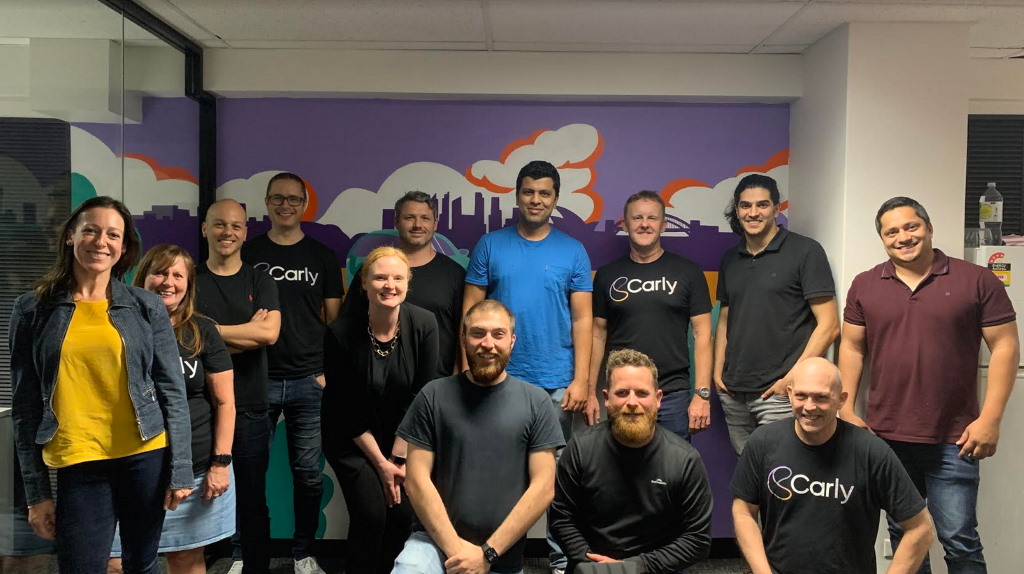Five Ways Businesses can be more flexible and low-risk in 2021
- Written by Carly

The pandemic has had a devastating effect on many Australian businesses, but plenty more have used the challenge as an opportunity to recalibrate operations or reinvent their offering to ensure survival and set themselves up for success.
With more than 2 million small and medium businesses employing more than 4.8 million Australians – the equivalent to 44% of the working population – contributing to 57% of the country’s GDP, Australian small and medium businesses are crucial to our economic and employment outcomes.
Chris Noone, CEO of Carly, Australia’s most flexible car subscription service, says the challenges for small and medium businesses are likely to continue into 2021. “No one could have predicted COVID-19, and even though Australia has fared better than other countries, experts forecast a long path back to a ‘new normal’. This means Australian small and medium businesses need to be on top of their operations and finances to remain as flexible as possible and ensure they can survive, thrive and grow once again.”
Here, Chris Noone outlines five ways Australian businesses can lower their risk and recalibrate to survive the challenges of 2021 and beyond.
- Limit your exposure to risk by reviewing working capital and expenses
Ensure any loans, finance and third-party suppliers are competitive and adding value to your business strategy. If they aren’t, it may be time to look at negotiating a better deal or seek alternative, more flexible options that will allow your company to work with business ebbs and flows. For example, Carly is a low-risk alternative to a car purchase, lease or loan. Under our subscription model, a business can access vehicles on a month-to-month basis with no lock-in contracts – meaning they can cancel anytime with just 30 days’
notice. If a business finds themselves in a position where they need to scale their vehicles up or down quickly, they can do so with no financial consequences. This level of flexibility is crucial in times of uncertainty.
- Avoid high-risk customers
Not all customers are equal – it’s just that simple. Some pose more risk than others, and when it comes to high-value products you need to have a risk-assessment plan, along with due-diligence checks, firmly in place. When Airbnb first went to market it quickly learnt that bookings of more than 10 people can mean a rowdy party as opposed to a family, which increased the risk of damage and the need for cleaning services. To protect the property, Airbnb now charges deposits and cleaning fees, which are proportionate to the property’s size and value.
At Carly, we developed an identification technology called PeerPass, to protect our cars and ensure they are returned. Peer Pass validates the identity of the person taking out the car subscription as well as undertaking a basic credit check. This platform was created to limit the risk of identity fraud, minimise the possibility of theft, ensure the person taking out the car subscription is accountable for the use and care of the car, and guarantees that they have the capacity to make the payments.
High-risk customers impact the performance of your business and bottom line, they can adversely impact your reputation. Reputation is a key commodity for any business. A Harvard Business Review study found that reputation is a matter of perception that leads to various positive effects. Businesses with a great reputation are seen as having more value, and the industry believes that these companies can deliver sustained earnings, which is exactly how you want to be perceived during a global pandemic.
- Find new revenue streams to diversify and pinpoint new opportunities
While it makes sense in the short term to dedicate all your resources to making sure your primary source of revenue is in great shape, unforeseen changes in the market or economy – like COVID-19 – has shown that operating solely under one stream of revenue can deliver a devastating blow to your business. Diversification of revenue streams is key to ensuring your business is built on a robust foundation that will not leave you in a vulnerable position should unforeseen circumstances, like the pandemic, occur. The automotive industry has been forced to diversify in response to declining car sales in recent years. Manufacturers have had to find new ways to generate income, such as car servicing, financing and now car subscription. This allows them to utilise floor stock that has been sitting idle, creating a new and recurring revenue stream that can acquire customers online and at the dealership.
- Continue to innovate and improve your product to meet customers’ changing needs
Innovation should be customer-centric, driven by the needs of your customers rather than the business. A great example of an Australian start-up doing exactly this is Koala. Founded by Mitchell Taylor and Dany Milham, the online retailer got its start selling mattresses online. After experiencing initial success filling a gap in the market, they have continued to thrive by listening to what their customers wanted. They have now expanded their range to include well-designed, easy-to-access and simple-to-assemble furniture.
At Carly we are always looking for ways to innovate and improve our product, and our recent Australian Taxation Office (ATO) Product Ruling is a perfect example of this. Australians and Australian businesses are looking at ways to increase their flexibility, de risk finances and save on household or business budgets in the wake of COVID-19. Our ATO Product Ruling ensures Carly subscribers can claim the car subscription payments as a tax deduction when the subscription is used for business or work purposes This not only makes our product more appealing to consumers and Australian businesses, it improves the service we are able to provide and sets a new benchmark for the car subscription category.
- Track the data, do the research to understand your market
Businesses today have access to a lot of incoming data. Closely tracking data can bring a level of certainty and direction to money management but it can also help you to better understand what’s important to the business and your customer, so you can make better decisions. Your business will continually evolve, and that can change how you connect with customers – and even the type of customer you are connecting with. Having a good
handle on your business’s data and analytics can help you to navigate those changes and better predict consumer behaviour, identify market trends and determine the return on investment on your marketing efforts.
However, always remember that your internal data is often the most valuable when it is supported by independent consumer research. For example, Omnipoll Surveys (a consumer research tool), are a great way to validate the stories your internal data is telling you, as well uncover target markets that you may not have previously prioritised. Carly recently commissioned a research piece that identified that 38% of Australians, and 69% of Gen Zs, would consider car subscription for their next vehicle. Gen Z's high propensity to want to try car subscription was a good indicator for us that our product resonates strongly with digital natives and people who are familiar and comfortable with the subscription business model.
Taking a flexible approach to business and being prepared for more twists and turns is crucial in this post-pandemic world. The businesses that can adapt and embrace uncertainty are sure to lead the way, whatever their size.








